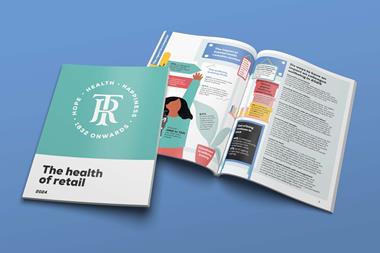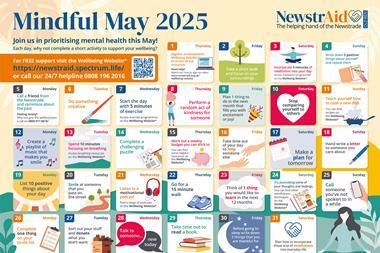
The busy festive period can cause many retail workers to experience a lack of sleep, whether it’s due to working overtime or being rushed off their feet. Unfortunately, it’s something many will start to experience over the coming weeks.
Unsurprisingly, this can have a knock on effect in your store, with mistakes, irritability or even unwanted sick days happenign as a result of tiredness.
To help those working in industries that will be busier than ever, Martin Seeley, resident Sleep Expert and CEO of the Mattress Next Day website, has teamed up with nutritionist Stephanie Baker to provide workers with healthy sleep practices.
The pair have put together a list of tips to follow over the next few weeks…
Keep your bedtime routine consistent
It’s best to try and stick to your routine whenever possible, particularly if you’ve worked overtime. Altering your bedtime on days off can often reflect “social jet lag,” caused by irregular sleep patterns. Shift workers are already more prone to experiencing this due to staying up later during days off, which, in turn, makes them more tired.
Spruce up your bedroom
Invest in blackout blinds or curtains to block out light. Alternatively, opt for a satin eye mask which can help you sleep and is gentle on your skin as it reduces friction from tossing and turning. Avoid electronic devices before bed as the blue light affects melatonin levels, which can cause you trouble getting to sleep - or use blue light filters to reduce the exposure to blue lights.
Plan your meals when working shifts
If working nights, it can be tempting to eat a big dinner when you get home (at breakfast time) and then try to fall asleep, but there can be a link between eating closer to bedtime and struggling to fall and stay asleep. It can also impact digestion. Try to avoid a large meal at least three to four hours before bed. However, if this isn’t possible, at least try to avoid overly sugary and fatty foods.
Add an hour to your bedtimes
Switching from day to night shifts can cause significant sleep restrictions. If you’re due to start working nights, start adding an extra hour to your bedtime a few days before. If you typically go to bed at nine, change it to 10 and so on. This should help set you up for a new routine where you will be going to bed later and avoid any dramatic changes which will knock your rhythm out of sync.
Avoid long naps
Ideally, naps should be avoided. But if needed, limit yourself to a short nap that’s no longer than 25 minutes. Naps as short as 10 minutes can enhance mood and alertness
Get active during the day
Sitting all day? It’ll make your body restless. One of the best ways for workers who sit down for long periods such as fleet or delivery drivers to sleep better is by getting active during the day. Maintain a regular workout routine by going on a run, jog or short stroll. Even a short burst of 10–15-minute activity will make a difference.
Limit alcohol after a shift
Although it sounds tempting to have a drink post-shift, it can interfere with sleep and lead to dehydration. Therefore, try and avoid a drink if necessary if you’re working the following day
Get out of bed as soon as you wake up
Don’t lie in bed awake for long periods as it’ll make it easier to fall back asleep and increase feelings of anxiety which can often develop among those sleeping on night shifts. If you’re struggling to wake up, get out of bed and do something energetic.
For further sleeping tips, and to read Stephanie Baker’s diet advice, check out the guide here.











![WG-4003[58]](https://d2dyh47stel7w4.cloudfront.net/Pictures/274x183/4/5/1/353451_wg400358_6083.jpg)
















No comments yet